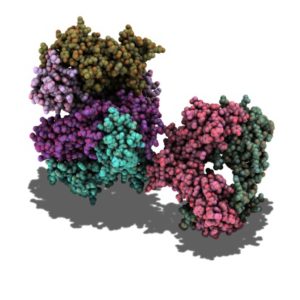Chimeric antigen receptor (CAR)-T cell therapy harnesses the power of the patient’s own immune system to combat cancer. In theory, CAR-T cell therapy is simple; extract the patient’s own T-cells, modify them with a viral vector to express an artificial chimeric receptor specific for a cancer antigen, and re-infuse the cells back into the patient. Many steps of the process, however, including apheresis collection of the lymphocytes and the selection of the necessary T-cells, still need refining, and the transfusion medicine community will be needed to provide helpful insights for improving CAR-T therapy. From 1991 to 2014, CAR-T therapies were used to treat 119 patients with B-cell malignancies; 73% of these patients responded well to the treatment. The most serious side effect of the treatment, cytokine release syndrome, is characterized by high cytokine levels leading to high fevers and hypotension in addition to multiorgan failure. With future improvements, CAR-T cell therapy holds promise to become the next successful weapon in cancer treatment.
Reference:

